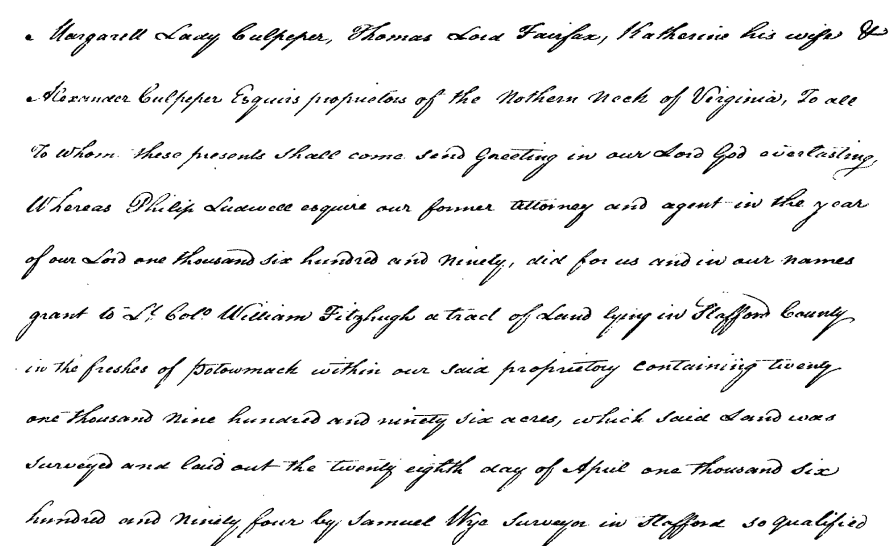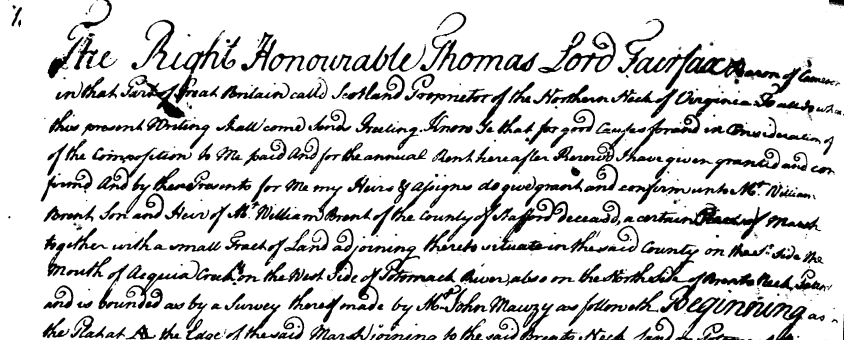Land Office Records
I assume Northern Virginians prior to 1608 had some mechanisms for asserting control over property, but we lack sufficient evidence to understand those mechanisms. In contrast, the colonial records provide extensive documentation of property claims by early English settlers. When official records were lost, they could be re-issued.

Ravensworth grant for 21,996 acres "in the freshes of Potomack River," as re-issued on October 1, 1694
(Note that the property, now in Fairfax County, was described as part of Stafford County.
Prince William County was not created until 1731, and Fairfax County was not established until 1742.)
Source:
Library of Virginia
Grants issued by the colonial government's land office in Jamestown/Williamsburg, and by Lord Fairfax's land office for property in his proprietary grant between the Rappahannock and Potomac rivers, were recorded in a Public Records Office. These are available online now, via the Library of Virginia site on Virginia Land Office Patents and Grants/Northern Neck Grants and Surveys:

May 31, 1749 grant to William Brent (signed by Thomas Lord Fairfax) for 93 acres on the south side of Aquia Creek

Brent Point (place names come from somewhere...)
Source:
Terraserver
Today, land records (sales, mortgages, refinancings, etc.) are recorded (filed) in the county/city clerk's office. If a real estate contract is not recorded, then the contract is not enforceable. Don't go to court claiming so-and-so promised you a percentage of the sales price for a house, unless you have previously recorded your contract. In real estate, verbal-only contracts are worthless.
Property transactions for parcels in the City of Alexandria are filed in the Alexandria Circuit Court. City of Falls Church transactions are recorded with the Arlington County Circuit Court, together with Arlington County transactions. Real property transactions involving parcels located within the City of Fairfax are recorded in the Fairfax County Circuit Court. Hmm...can you guess where property transactions for the City of Manassas/City of Manassas Park are filed?
Plan to refinance, and wonder what are those "recordation fees" that seem to appear at closing? You must pay a fee to record a document at the court. The General Assembly has increased recordation fees to generate funds for various purposes. if you refinance your Deed of Trust (mortgage) with the bank/loan company, someone will have to pay a fee to document the new mortgage. taxing home sellers has become popular, since even a substantial tax (or "grantor's fee") may appear small when compared to the equity a seller receives.
Land Development
Geography of Northern Virginia
Virginia Places



